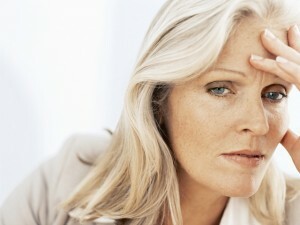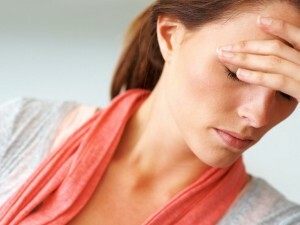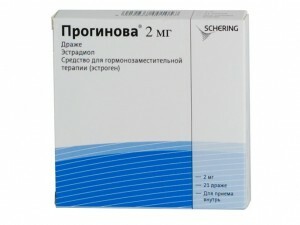Menopause changes the features of the functioning of the body not only in terms of reproductive capabilities. Otherwise, many of its systems, in particular, the central nervous system and psycho-emotional sphere. Climax and depression of some women visit almost simultaneously. Whims of this, or the mandatory manifestation of the syndrome?
Why depression can occur in menopause

Ovarian fading means stopping the synthesis of sex hormones. Substances are involved in very many processes. In the aspect in question, estrogens and gestagens affect the production of components that provide a good mood, high immunity, external attractiveness. Their volume also decreases, causing a deterioration in the listed health indicators.
Not all women can resist this, 8-15% have depression with menopause, that is, a state in which the perception of the surrounding world, the attitude to everything, is sharply negatively affected.
In menopause, there are several reasons for this:
- Physiological. Fluctuation of sex hormones can exist even during the day, not to mention different periods of menopause. Primary importance belongs to estrogen. Due to its quantitative reduction, the production of serotonin, responsible for good mood, ability to withstand stress, is reduced. Do not improve the overall emotional background and other symptoms of menopause: tiring tides, headaches, chronic fatigue and lack of sleep. They also occur through the fault of decreased estrogens;
- Psychological. Climax and simultaneously depression can coincide and because this period is perceived as the final stage of a happy and young life, the onset of old age. Termination of reproductive opportunities pleases not everyone, especially if personal destiny has developed not very successfully. Oppressing changes in appearance: skin aging, sudden weight gain, increased hair loss. Decreased for objective reasons, working capacity, rapid fatigue support the thought of aging.
All this can not only spoil the character and mood, but lead to real pathological manifestations. Depression is a real mental disorder that does not give anything to rejoice, to see the bright side of life, discouraging even the desire for physical activity.
Symptoms of climacteric psychiatric disorder
 Symptomatic depression in menopause depends on the type of disease:
Symptomatic depression in menopause depends on the type of disease:
- Endogenous provokes a feeling of melancholy, complete indifference to everything, negative for any, even objectively favorable events of the past and present, the certainty that the future does not beargood. With her usual disturbances of appetite and insomnia, often tantalizing;
- Involutionary is characterized by constant and unfounded fears for one's own health. A woman seeks( and finds) herself signs of ailments that are actually absent, afraid of any possible misfortunes, for example, lonely old age, poverty, all sorts of catastrophes with a deadly outcome for her. Periodically, she has pains in different parts of the body, caused by negative thoughts;
- Psychogenic leads to a low self-esteem, a sense of own uselessness. Feverish attempts to retain the elusive outward youth are replaced by periods of complete indifference to the woman's appearance. This type of depression during menopause provokes a constant sense of guilt for failure, own and loved ones. Accompanied by all disorders of sleep, lack of appetite, weight loss;
- Menopause causes despondency, a frequent desire to cry, a sharply changing mood. Emotions are hypertrophied, but negative ones predominate. Frequent attacks of apathy, followed by anxiety. The woman lacks appetite and libido, but there is insomnia, often tantalizing tides.
If several signs are observed 2 weeks and longer, while their number is more than 4, the specialist will diagnose "depression".

How to treat a depressive disorder
If overtax depression in menopause, treatment should be professional. In addition to the examination of a gynecologist, consultations of a neurologist, an endocrinologist and a psychiatrist may be necessary.
 With a mild form of the disease for the return of normal psycho-emotional well-being, it is enough antiplasmic hormone therapy with drugs:
With a mild form of the disease for the return of normal psycho-emotional well-being, it is enough antiplasmic hormone therapy with drugs:
- Divina;
- Proginova;
- of the Climart;
- Derremiril;
- Klimodien;
- Femoston;
- Livial.

In more serious cases, therapy with psychotropic drugs, i.e. antidepressants and antipsychotics, is required. Among the first appoint funds:
- Fluvoxamine;
- Paroxetine;
- Fluoxetine.
Drugs facilitate the condition by stimulating the production of serotonin. This hormone is responsible for psycho-emotional well-being.
Among the antipsychotics, the choice can fall on:
- Sonapaks( Thiodazine, Tyson);
- Etaperazine;
- Perphenazine.
Means block the development of substances that provoke anxiety, irritability, aggression. Neuroleptics calm, help to fight with insomnia.
Climax and the depression coming to his background are successfully treated. A woman and herself can do something to prevent mental disorders.
Striving for positive emotions, adequate nutrition, avoidance of negativity, reasonable physical load contribute to maintaining mental balance. But the main thing - do not be afraid to seek medical help.

 We recommend reading the article about the action of sedatives with menopause. You will learn about the indications for their use, effectiveness in neurosis and depression.
We recommend reading the article about the action of sedatives with menopause. You will learn about the indications for their use, effectiveness in neurosis and depression.